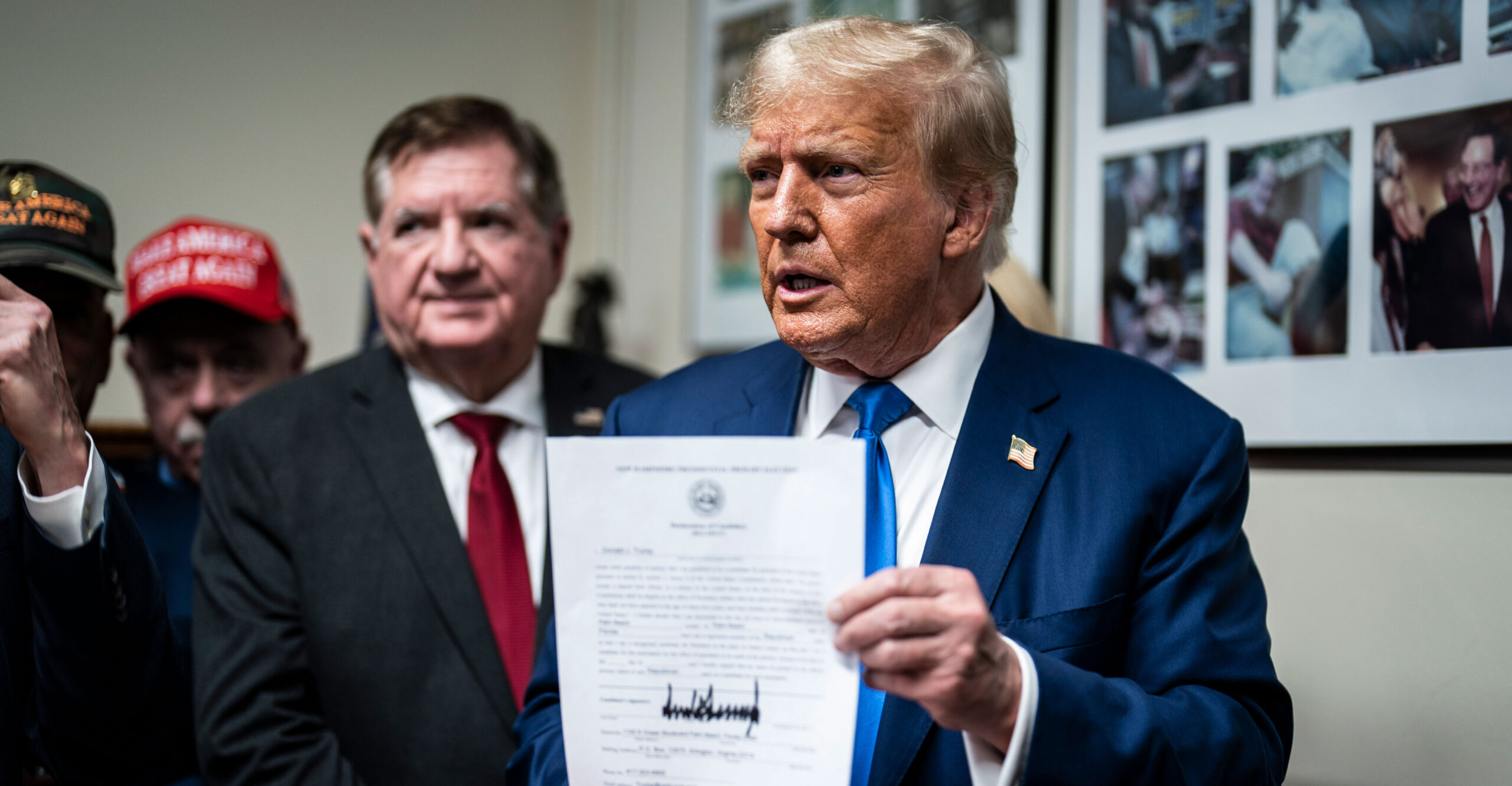Doc7505
Diamond Member
- Feb 16, 2016
- 15,718
- 27,674
- 2,430
Trying to Bar Trump From 2024 Ballot Is Unconstitutional and Lawfare at Its Worst

Bid to Keep Trump Off '24 Ballot Is Naked Lawfare, Unconstitutional
These anti-Trump ballot challenges are lawfare at its worst, trying to use the law and the courts as a political weapon.
As state court proceedings get under way in Colorado, Michigan and Minnesota in lawsuits aimed at barring Donald Trump from appearing as a presidential candidate on the ballot in next year’s presidential election, the judges in those cases should understand that the text, history, and application of the 14th Amendment make it clear that they have no legal authority to take any such action.
Due to Trump’s supposed actions on Jan. 6, 2021, the challengers are trying to argue that Section 3 of the 14th Amendment, the disqualification clause, prevents him from being president even if he is elected, so he should be removed from the ballot by state election officials.
Section 3 provides that:
No person shall be a Senator or Representative in Congress, or elector for President and Vice President, or hold any office, civil or military, under the United States … who, having previously taken an oath, as a member of Congress, or as an officer of the United States … to support the Constitution of the United States, shall have engaged in insurrection or rebellion against the same … . But Congress may, by a vote of two-thirds of each House, remove such disability.
Because Trump allegedly engaged in an insurrection, according to the challengers, he is disqualified by Section 3.There are three major legal problems with that claim, however.
Trump Didn’t Hold An Applicable Office
First of all, Section 3 only applies to individuals who were previously a “member of Congress,” an “officer of the United States,” or a state official. Trump has never been any of those.
He has never held state office or been a U.S. senator or representative, and the U.S. Supreme Court held in 1888 in U.S. v. Mouat that “officers” are only those individuals who are appointed to positions within the federal government.
Individuals who are elected—such as the president and vice president—are not officers within the meaning of Section 3.
~Snip~
No Conviction for ‘Insurrection or Rebellion’
Second, no federal court has convicted Trump of engaging in “insurrection or rebellion” in violation of 18 U.S.C. §2383, which makes it a crime to engage in “any rebellion or insurrection against the authority of the United States.”More importantly, in the second impeachment resolution of Trump on Jan. 11, 2021, he was charged by the House of Representatives in Article I with “Incitement of Insurrection.” Yet, he was acquitted by the Senate.
Given our federal constitutional system, state and federal courts should not gainsay the findings of Congress on this issue. The risk of inconsistent rulings from state and county election officials, as well as from the many different courts hearing these challenges, could cause electoral chaos.
~Snip~
Section 3 No Longer Extant?
Third, there is an argument that can be made—and which was already adopted by one federal court—that Section 3 doesn’t even exist anymore as a constitutional matter.Keep in mind that the 14th Amendment was ratified in 1868 after the end of the Civil War. It was aimed at the former members of the Confederate government and military who had previously been in Congress or held executive posts.
All of the challengers filing lawsuits to try to remove Trump from their state ballots are ignoring the final sentence in Section 3, which is a unique provision found in no other amendment to the Constitution. It allows Congress to remove the disqualification clause “by a vote of two-thirds of each House.”
Congress voted to remove the disqualification twice. The Amnesty Act of 1872 stated that the “political disabilities” imposed by Section 3 “are hereby removed from all persons whomsoever” except for members of the 36th and 37th Congresses and certain other military and foreign officials.
Commentary:
Excellent, reasoned and backed by historical fact, SCOTUS rulings and Congressional Acts by the author Hans von Spakovsky.
Democrat Socialists of America Commies use of Lawfare is obviously subjective and unconstitutional. Any judge participating in such shenanigans, should face pushback and disbarment.



